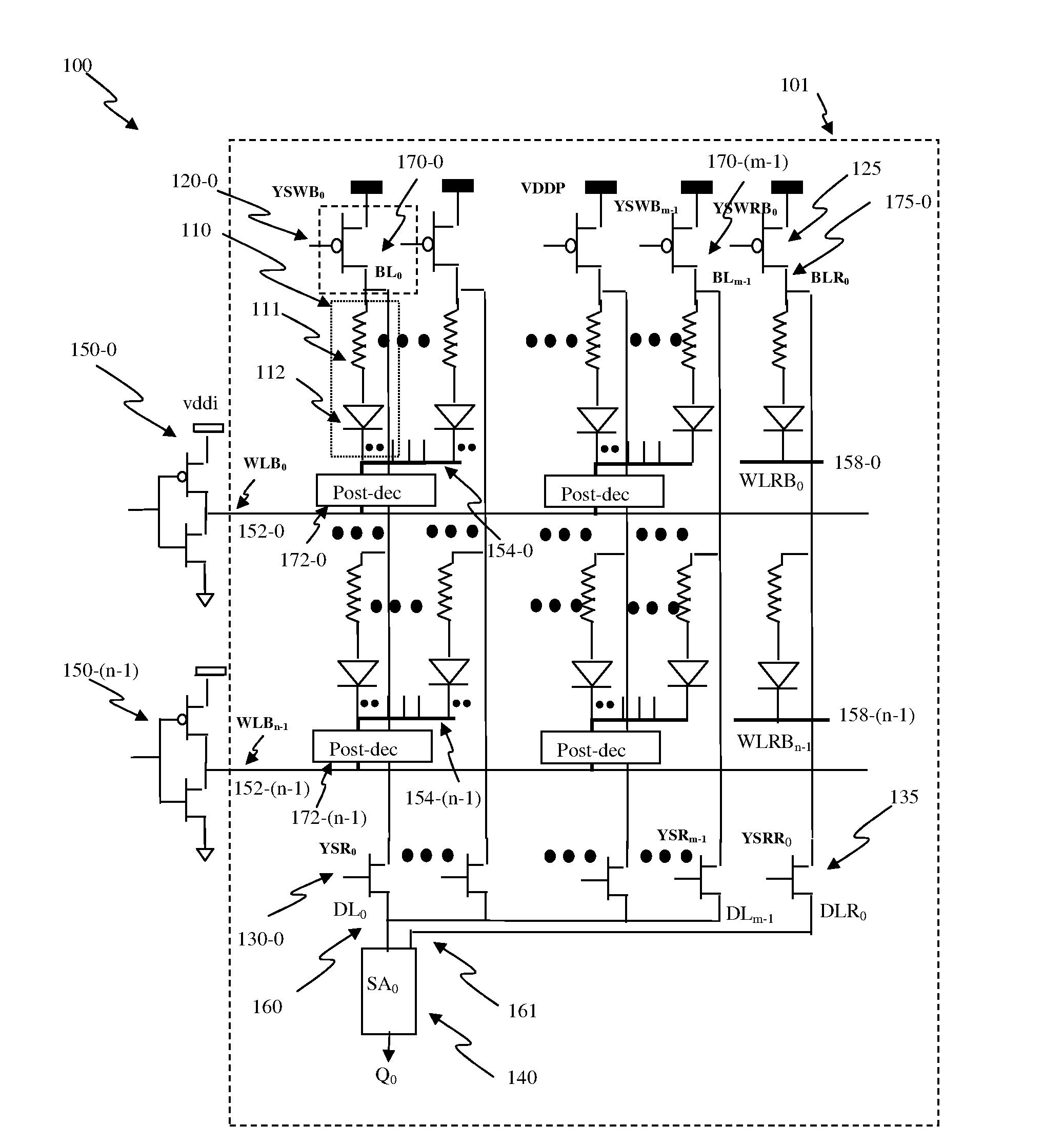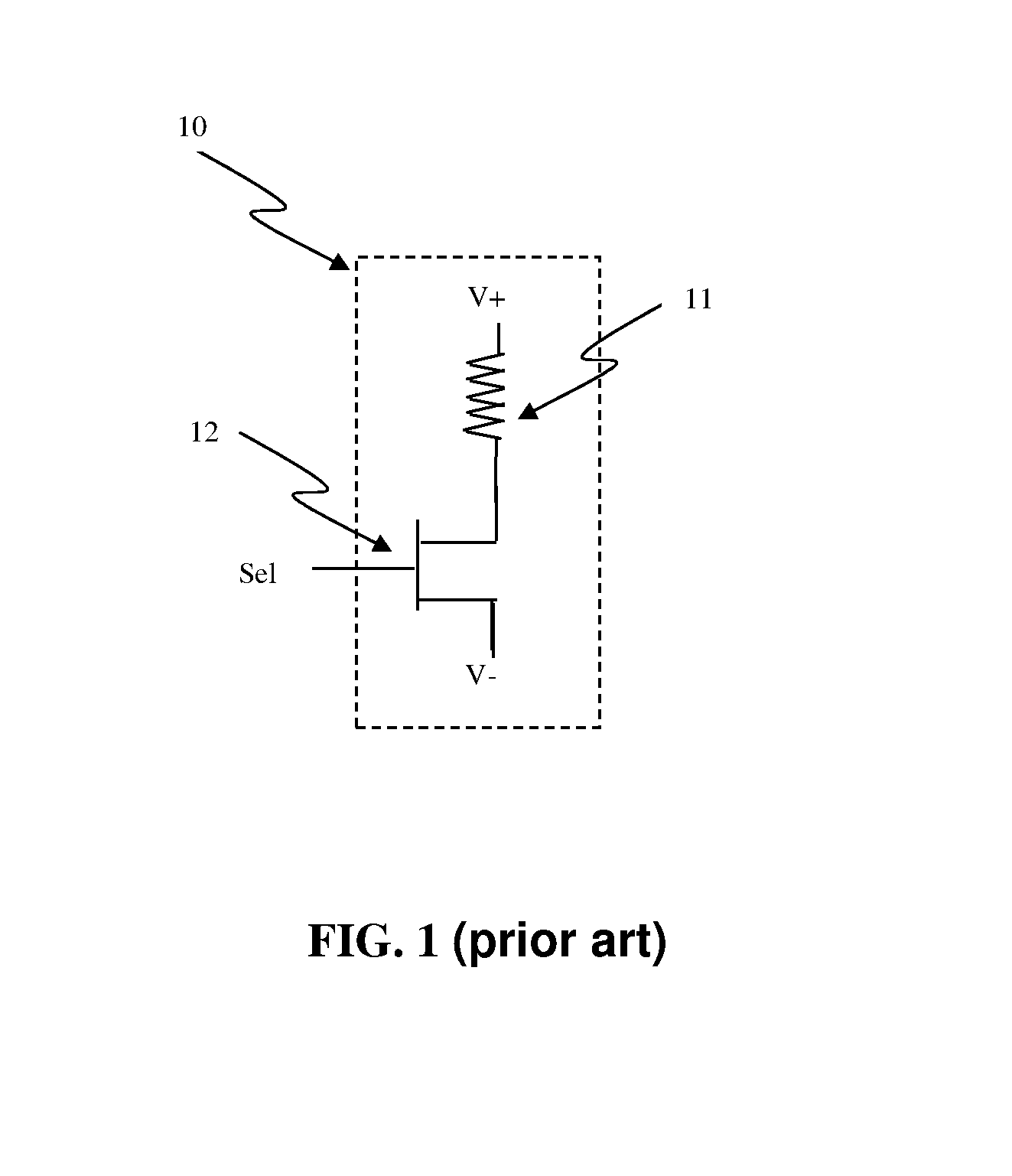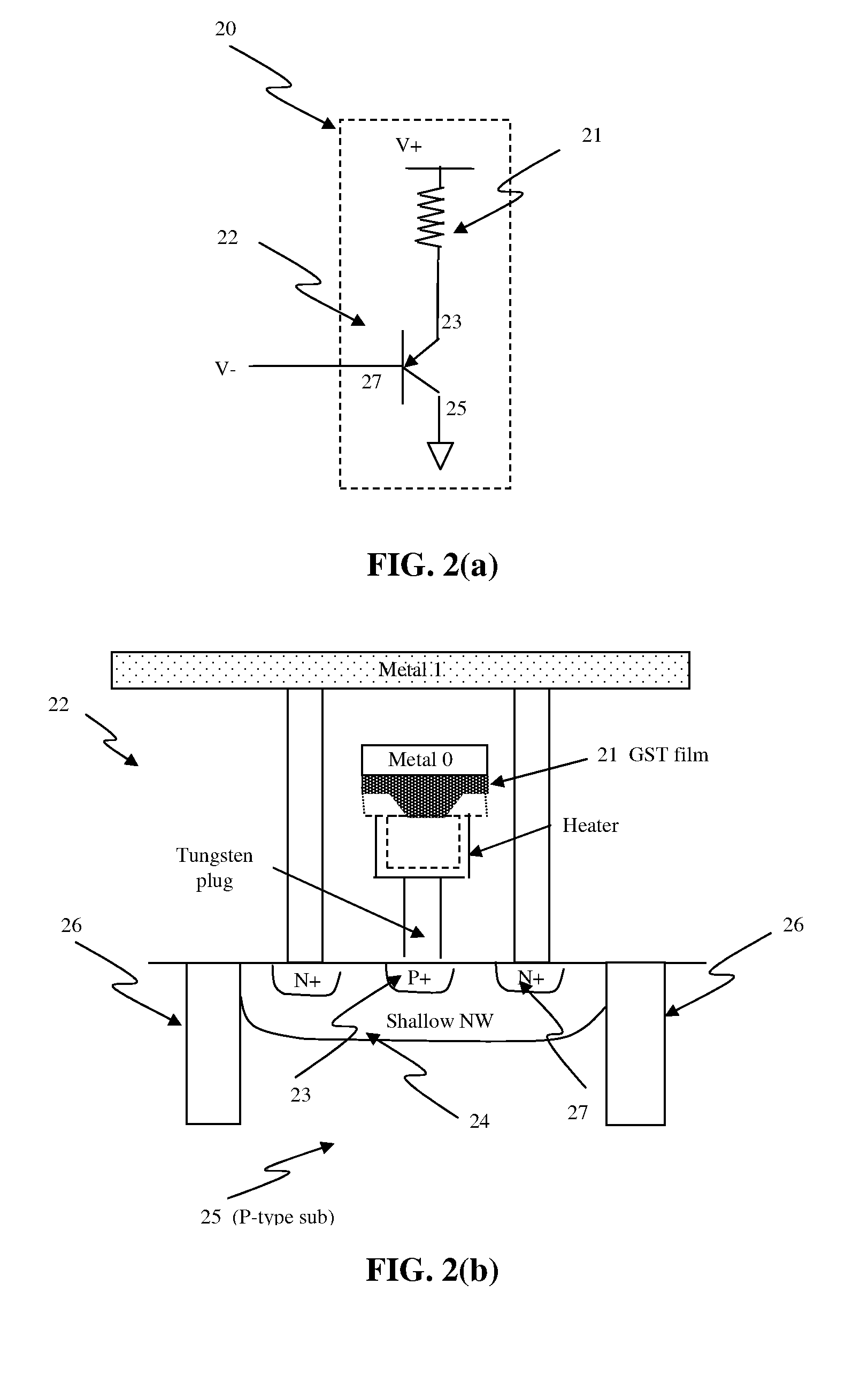One-time programmable memories using polysilicon diodes as program selectors
- Summary
- Abstract
- Description
- Claims
- Application Information
AI Technical Summary
Benefits of technology
Problems solved by technology
Method used
Image
Examples
Embodiment Construction
[0068]Embodiments disclosed herein use a polysilicon diode as program selector for a programmable resistive device. The diode can comprise P+ and N+ implants on a polysilicon substrate. Since the P+ and N+ implants and polysilicon are readily available in standard CMOS logic processes, these devices can be formed in an efficient and cost effective manner. There are no additional masks or process steps to save costs. The programmable resistive device can also be included within an electronic system.
[0069]FIG. 6(a) shows a block diagram of a memory cell 30 using a polysilicon diode according to one embodiment. In particular, the memory cell 30 includes a resistive element 31 and a polysilicon diode 32. The resistive element 31 can be coupled between an anode of the polysilicon diode 32 and a positive voltage V+. A cathode of the polysilicon diode 32 can be coupled to a negative voltage V−. In one implementation, the memory cell 30 can be a fuse cell with the resistive element 31 opera...
PUM
 Login to View More
Login to View More Abstract
Description
Claims
Application Information
 Login to View More
Login to View More - R&D
- Intellectual Property
- Life Sciences
- Materials
- Tech Scout
- Unparalleled Data Quality
- Higher Quality Content
- 60% Fewer Hallucinations
Browse by: Latest US Patents, China's latest patents, Technical Efficacy Thesaurus, Application Domain, Technology Topic, Popular Technical Reports.
© 2025 PatSnap. All rights reserved.Legal|Privacy policy|Modern Slavery Act Transparency Statement|Sitemap|About US| Contact US: help@patsnap.com



